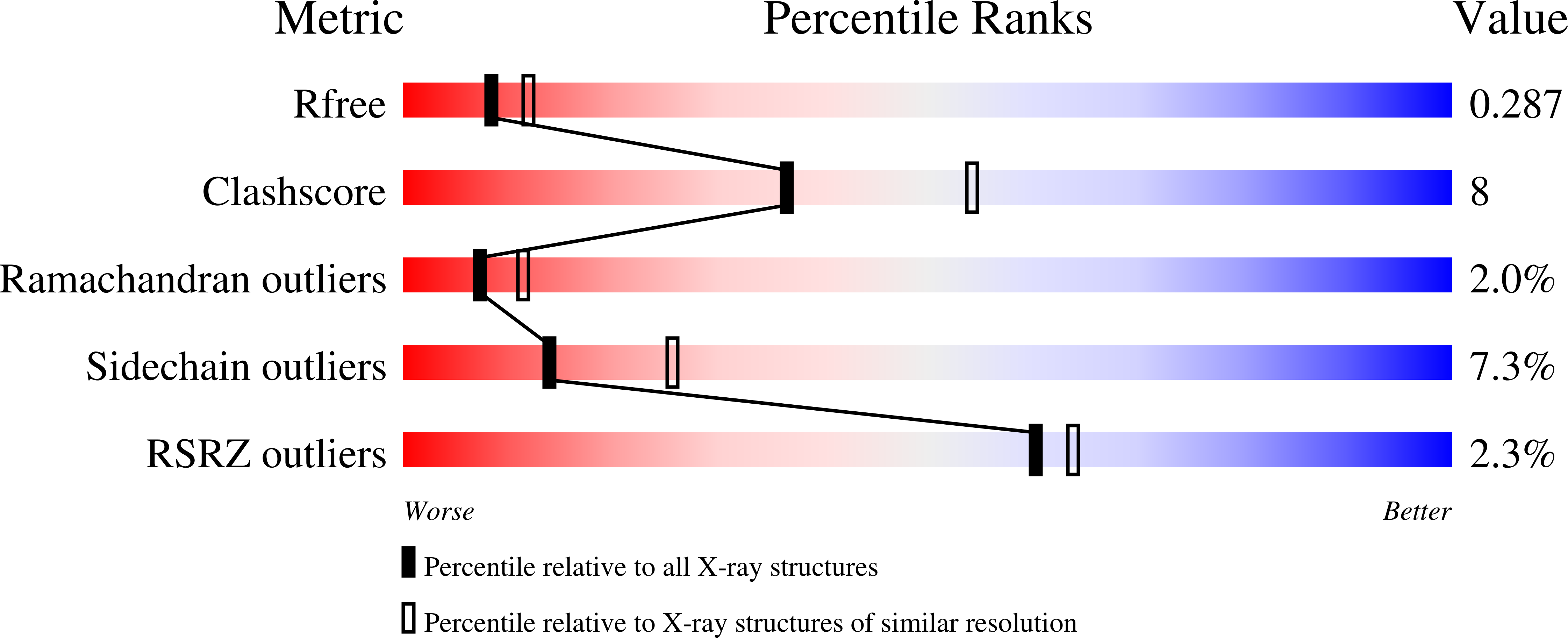From Repurposing to Redesign: Optimization of Boceprevir to Highly Potent Inhibitors of the SARS-CoV-2 Main Protease.
Gohl, M., Zhang, L., El Kilani, H., Sun, X., Zhang, K., Bronstrup, M., Hilgenfeld, R.(2022) Molecules 27
- PubMed: 35807537
- DOI: https://doi.org/10.3390/molecules27134292
- Primary Citation of Related Structures:
7QL8, 7QUB, 7QUW, 7Z0P - PubMed Abstract:
The main protease (M pro ) of the betacoronavirus SARS-CoV-2 is an attractive target for the development of treatments for COVID-19. Structure-based design is a successful approach to discovering new inhibitors of the M pro . Starting from crystal structures of the M pro in complexes with the Hepatitis C virus NS3/4A protease inhibitors boceprevir and telaprevir, we optimized the potency of the alpha-ketoamide boceprevir against the M pro by replacing its P1 cyclobutyl moiety by a γ-lactam as a glutamine surrogate. The resulting compound, MG-78 , exhibited an IC 50 of 13 nM versus the recombinant M pro , and similar potency was observed for its P1' N -methyl derivative MG-131 . Crystal structures confirmed the validity of our design concept. In addition to SARS-CoV-2 M pro inhibition, we also explored the activity of MG-78 against the M pro of the alphacoronavirus HCoV NL63 and against enterovirus 3C proteases. The activities were good (0.33 µM, HCoV-NL63 M pro ), moderate (1.45 µM, Coxsackievirus 3C pro ), and relatively poor (6.7 µM, enterovirus A71 3C pro ), respectively. The structural basis for the differences in activities was revealed by X-ray crystallo-graphy. We conclude that the modified boceprevir scaffold is suitable for obtaining high-potency inhibitors of the coronavirus M pro s but further optimization would be needed to target enterovirus 3C pro s efficiently.
Organizational Affiliation:
Department of Chemical Biology, Helmholtz Centre for Infection Research, Inhoffenstr. 7, 38124 Braunschweig, Germany.
















